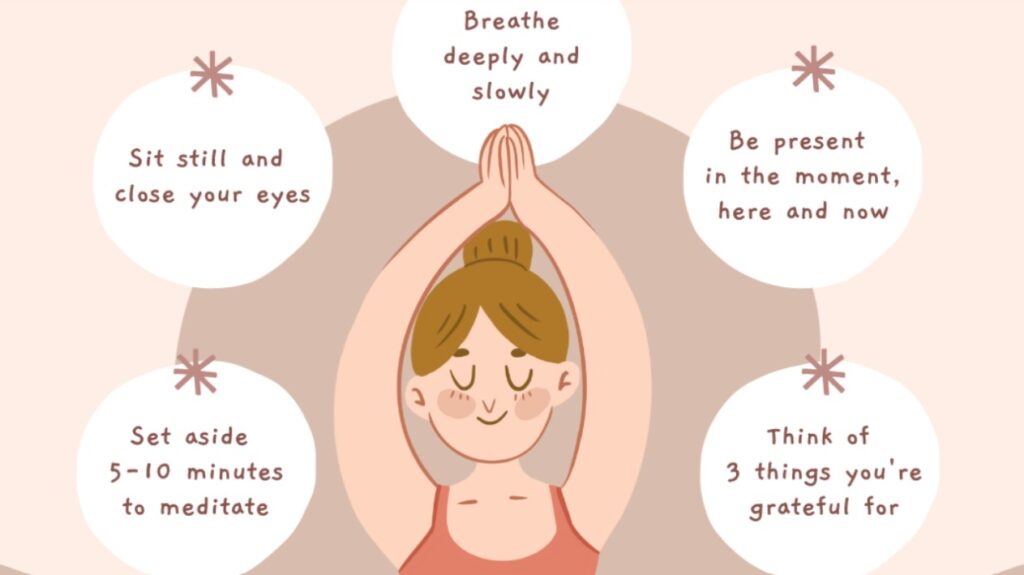The Power of Mindfulness Practice: Cultivating Well-Being and Resilience

In today’s fast-paced world, finding moments of stillness and peace has become a rarity. We’re constantly bombarded with distractions, deadlines, and stressors that can take a toll on our mental and physical health. Mindfulness practice offers a refuge from this chaos, allowing us to cultivate a sense of well-being, resilience, and a deeper connection with ourselves and the world around us. In this article, we’ll explore what mindfulness is, the benefits it offers, and how to incorporate it into your daily life.
Understanding Mindfulness
Mindfulness is a mental practice rooted in ancient Eastern traditions, particularly Buddhism, and has been adapted and embraced in various forms across cultures and societies. At its core, mindfulness involves paying deliberate attention to the present moment, without judgment or attachment to the past or the future. It’s about being fully present, engaging all your senses in the here and now.
How to Practice Mindfulness?

Mindfulness can be practiced in various ways, including:
1. Meditation: This involves sitting quietly, focusing on your breath, bodily sensations, or a specific thought or object, and observing your thoughts and feelings without judgment.
2. Mindful Breathing: You can practice mindfulness by simply paying attention to your breath. It’s a simple yet effective way to ground yourself in the present moment.
3. Mindful Walking: Take a leisurely walk and observe the sights, sounds, and sensations around you, immersing yourself in the act of walking.
4. Mindful Eating: Savor each bite during your meals, paying attention to the taste, texture, and smell of the food. This can enhance your appreciation for the nourishment it provides.
Benefits of Mindfulness Practice
1. Stress Reduction
One of the most well-documented benefits of mindfulness is its ability to reduce stress. By focusing on the present moment, you can break the cycle of worry and anxiety that often plagues us. Mindfulness techniques, like deep breathing and meditation, activate the relaxation response, leading to a decrease in stress hormones.
2. Improved Mental Health
Mindfulness has been shown to be effective in managing and preventing various mental health conditions, including depression, anxiety, and post-traumatic stress disorder. It can increase self-awareness and emotional regulation, helping individuals to better cope with negative emotions.
3. Enhanced Focus and Concentration
Regular mindfulness practice can sharpen your concentration and cognitive abilities. By training your mind to stay present, you become less susceptible to distractions and better equipped to complete tasks efficiently.
4. Increased Emotional Resilience
Mindfulness fosters resilience by teaching individuals to accept and navigate challenges with equanimity. It helps build emotional strength and provides the tools needed to bounce back from adversity.
5. Better Relationships
Mindfulness can improve the quality of your relationships. By being fully present in your interactions, you can communicate more effectively, empathize with others, and build deeper connections.
6. Physical Health Benefits
Mindfulness practice is linked to lower blood pressure, improved sleep, and reduced symptoms in chronic conditions like pain and gastrointestinal disorders. By reducing stress and promoting relaxation, it can positively impact various aspects of physical health.
Incorporating Mindfulness into Your Daily Life
1. Start Small: You don’t need to commit to lengthy meditation sessions from the outset. Begin with just a few minutes of mindful breathing each day and gradually extend the time as you become more comfortable.
2. Consistency is Key: Establish a regular mindfulness routine. Set aside time each day to practice, and try to incorporate mindfulness into everyday activities, such as mindful eating or mindful listening.
3. Mindful Technology Use: Be mindful of your digital consumption. Set boundaries for screen time and practice digital detoxes to fully engage with the physical world.
4. Mindful Moments: Create mindful moments throughout the day. Take a few minutes to pause and breathe, centering yourself before diving back into your daily tasks.
Conclusion
Mindfulness practice offers a path to well-being, resilience, and a richer experience of life. In a world filled with distractions and stressors, taking time to be fully present can be transformative. The benefits of mindfulness extend to all aspects of life, from mental and emotional well-being to physical health and the quality of our relationships. By embracing mindfulness, you can find a profound sense of balance and tranquility in an often chaotic world. Start your mindfulness journey today, and discover the profound positive impact it can have on your life.





Responses